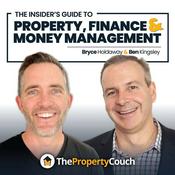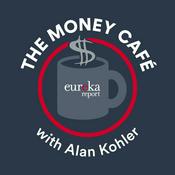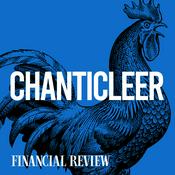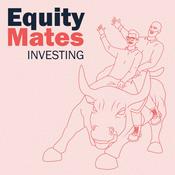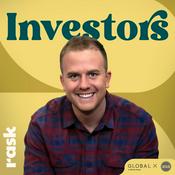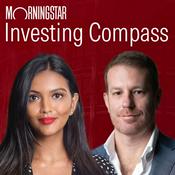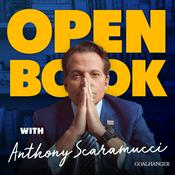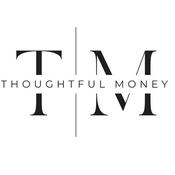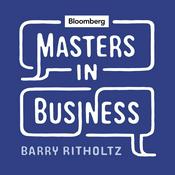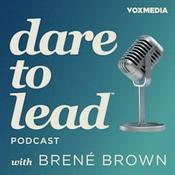62 episodes
- Terry Smith is the fund manager the professionals love tohate. A billionaire, he is in the third and most successful phase of a varied career. He trounced the index for years with a simple mantra of buy good companies, don’t overpay, do nothing. He thus built one of the largest funds inthe UK, made himself a fortune and moved to Mauritius. None of this made him popular with his peers and after 5 years of underperforming the S&P500 (his global fund has been mainly invested in the US) and underperforming the world index in 2025, there is quite a bit of schadenfreude around.
Smith used to box for fun and you wouldn’t want to be on thewrong side of him, but in this interview, he reveals a side less often seen. He confesses to being unable to sleep at night, worrying about stocks and expresses an extreme desire to do the best for his clients. Smith has been incredibly successful as an analyst, as a public company CEO and now as a fundmanager. He attributes it to hard work and a strong desire to succeed, driven by his background – Smith comes from a poor family and grew up in a house with an outside toilet. He is frustrated with his recent performance but is resolutethat he has the right approach and will prevail eventually. - James Anderson, former Senior Partner of Baillie Gifford and early backer of Elon Musk, now runs the Lingotto Innovation Strategy with Morgan Samet. I interviewed them in front of a live audience at Italian Tech Week, hence this shorter than usual episode. We discussed AI of course, China’s role in a portfolio as a leader in many areas of tech but with associated geopolitical risk, the future of autonomous driving, what it means to be a long term investor in innovation, investing in everything from start-ups to Nvidia and in between including Space X, flying cars and much more. I really enjoyed this conversation and I hope you will too – let me know if the shorter format is a better option for busy commuters.
- Tom Gayner is the CEO of Markel Group and has run its investment portfolio for 35 years, beating the index by an astonishing 1.5% pa. This makes him one of the most successful capital allocators in the US stockmarket, yet he is under the radar. He explains why he holds 140 stocks, although the top 40 represent 80% of the value; why there are so few imitators of the insurance/equity and business investment strategy so successfully deployed by Berkshire and Markel; the simple way to analyse an insurance business; what he has learned from being on the boards of Graham Holdings with Warren Buffett and on the Coca Cola Company; and one secret of Warren Buffett’s success which you likely will not have heard before. Tom Gayner is anything but a plodder, but his thoughtful, modest and cautious approach to investing and life makes him a fantastic role model.
- Tim Guinness is the founder and Chairman of Guinness Global Investors. He has been in business 5 decades and has been managing money for 44 years. He has built up two firms, the first he sold and the second now runs $11bn. Age 77, he is still thinking about how to grow the business and secure its future. Perhaps controversially, Tim thinks it’s not difficult for activemanagers to beat the index, even today. This was a fascinating discussion with an incredibly experienced and normally under the radar fund manager who is unafraid to challenge consensus thinking.
- Nick Train is a seriously thoughtful growth investor with a highly impressive 40 year track record. He invests in eternal franchises and takes a 20 year view. He says his ideal holding period is forever. He was early to recognise that high quality consumer brands were great investments and accordingly his funds significantly outperformed their benchmarks. More recently, the last five years have been less kind and performance has lagged somewhat with weak performance from some of his biggest holdings, notably Diageo, which is down almost 50% from its peak, in a market which has gone up.
Nick has taken this performance to heart and he explains why he has stuck with Diageo and continues to believe it’s as “forever” stock. He also explains his change in strategy to favouring 21st century asset light digital data plays which he sees as even more valuable than his old favourite consumer brands. He is particularly impressed with Rightmove, which I have described in the past as akin to a UK Zillow, and explains his rationale, as well as his enthusiasm for LSEG, RELX and Unilever.
More Business podcasts
Trending Business podcasts
About Behind the Balance Sheet
Our objective is to remove some of the mystique around investing and improve our understanding of what makes a successful investment, or indeed an unsuccessful one. We meet leading investors and commentators and educate ourselves not just about the world of investing but also about the world.
Our goal is to inform, educate, entertain and make you a better investor.
We feature famous guests and some you may not know. But we can learn from them all, whether you are one of our core audience of professional investors, a student looking to enter the industry or a private investor.
Podcast websiteListen to Behind the Balance Sheet, The Property Couch and many other podcasts from around the world with the radio.net app

Get the free radio.net app
- Stations and podcasts to bookmark
- Stream via Wi-Fi or Bluetooth
- Supports Carplay & Android Auto
- Many other app features
Get the free radio.net app
- Stations and podcasts to bookmark
- Stream via Wi-Fi or Bluetooth
- Supports Carplay & Android Auto
- Many other app features


Behind the Balance Sheet
Scan code,
download the app,
start listening.
download the app,
start listening.

